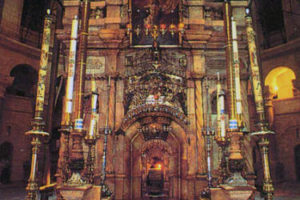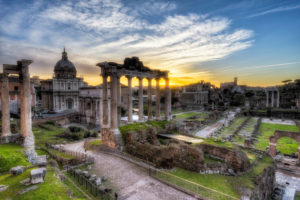A dissident group known as the Nicolaitans. were active in Asia Minor ca. 96 CE (Revelation 2:15). Reportedly, the church congregation at Ephesus hated “the deeds” or practices of the Nicolaitans (Revelation 2:6). But some in the church at Pergamos held their “teaching” (Revelation 2:15). The group’s teachings, troubled some church members, resulting in wrong or sinful deeds which the church condemned. The group appears to be a non-Gnostic movement of Christianized Gentiles, the forerunners of the Byzantines. largely comprised of people growing up in the church but never converted characterized by a general drift towards lawlessness. They disassociated themselves from Judeo-Christians as their movement became less Jewish.
In William Barclay’s description of the movement is probably an overstatement which obfuscates the true nature of the heresy. In his view:
“They were almost certainly people who argued on these lines. (a) The law is ended; therefore, there are no laws and we are entitled to do what we like. They confused Christian liberty with unchristian license. They were the very kind of people whom Paul urged not to use their liberty as an opportunity for the flesh (Galatians 5:13). (bl They probably argued that the body is evil anyway and that a man could do what he liked with it because it did not matter. (c) They probably argued that the Christian was so defended by grace that he could do anything and take no harm.”
Barclay 1976, 67-68)
Many grew up in the church and became the third Christian generation. Some were never actually converted. Those aged 25-60 in 70 CE would have been dead by 110 CE. Many in that timeframe apparently became permissive. After the Apostle John’s death circumstances changed. Some simply gave up. They lost confidence as a result of their misunderstanding and false assumptions. Others were no longer willing to trust in God and instead relied on their own human reasoning.
Disillusionment gave rise to doubt resulting in some questioning the veracity of apostolic teaching. The credibility of the apostles was put in to question. Discouragement fueled the endeavors of false teachers. Dissidents sized the opportunity for those brethren who had placed their hope the second coming at the fall of Jerusalem were vulnerable.
Disappointed, some allowed themselves to become disillusioned and subject to dissident arguments resulting in some doubting, in others commencing to leave the Church, and still others having left the Church entangling themselves in lawlessness. Some false teachers held that they possessed certain secret or special mystical knowledge that was crucial to salvation. These heretics professed to have a deeper understanding of truth than the apostles. They argued that only those with true discernment could comprehend the mystical understanding not known by the apostles nor by their successors.
Some of these teachers denied the incarnation of Jesus of Nazareth by arguing that the body of Jesus only appeared to be human, but in fact was not. When John wrote his gospel ca. 90 CE, he specifically addressed this matter at the beginning of his gospel. John declared that “the Word,” which had been with God for all eternity, literally became flesh and blood in the man Jesus Christ.
The letters 1 and 2 John constitute a polemic against this tendency. John wrote in reference to the teaching of a specific group. John’s phrase “if someone says” was not conditional but rather implies that these things were being said. Thus John dealt with the impact of persons who said that Christians were not bound by God’s commandments and/or who refused to acknowledge that Jesus was the Christ (1 John 2: 22). He stated that there are “many false prophets” in the sense of false minister or false preacher 1 John 4: I NASB). These people, often grouped by academics “Gnostic”, incorporated the name of Jesus, along with some basic Christian teachings, and proceeded under the rubric Christian. But they were actually none other than Christianized Gentile movements led by false teachers and prophets, claiming to be ministers of truth, who went out from the Judeo-Christian community of faith into the world 1 John 4: I NASB).


Recent Comments